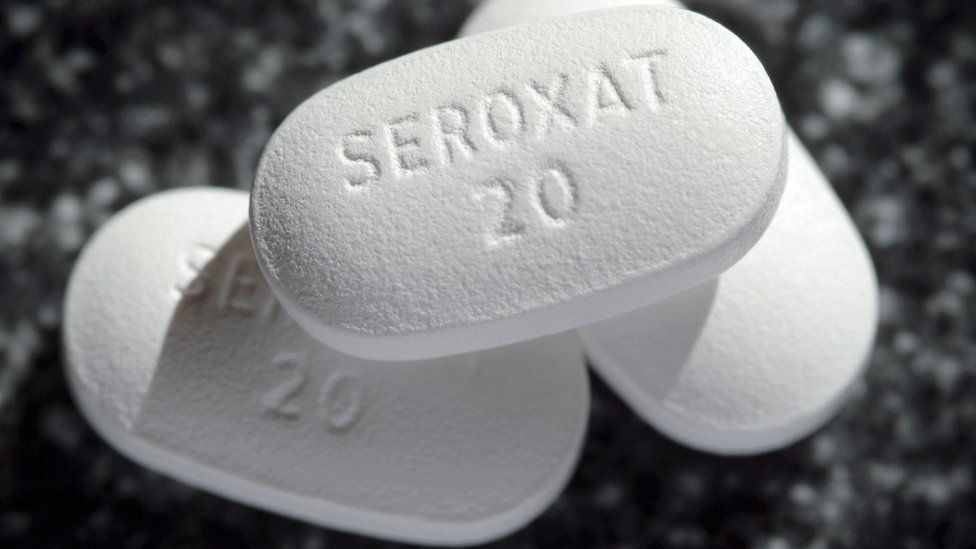GSK fined for deals with competitors
- Published

Pharmaceutical firm GlaxoSmithKline (GSK) and some generics companies have been fined for being anti-competitive.
The Competition and Markets Authority (CMA) says GSK made more than £50m of payments to companies making generic versions of its anti-depressant Seroxat to delay them coming to market.
GSK has been fined £37,606,275 and the generic firms have to pay £7.4m.
But GSK says its actions actually saved the NHS money and brought the generic drugs to the market sooner.
The other companies fined were Generics UK, Merck, Alpharma, Activis UK and Xellia Pharmaceuticals.
The CMA found that between 2002 and 2004, GSK had made agreements to pay cash to its competitors to prevent them bringing the generic version of Seroxat, called paroxetine, to market.
In addition to the cash payments, the CMA said the deals allowed the competitors to bring small amounts of paroxetine to market instead of GSK, transferring some of the profits to the generic manufacturers without increasing competition.
'Illegal behaviour'
Michael Grenfell from the CMA said: "Today's decision sends out a strong message that we will tackle illegal behaviour that is designed to stifle competition at the expense of customers - in this case, the NHS and, ultimately, taxpayers."
But GSK said it disagreed with the ruling and was considering appealing.
"GSK and the generics companies entered into these agreements at the time in order to settle costly, complex and uncertain patent disputes," its spokesperson said.
"The agreements allowed the generics companies to enter the market early with a paroxetine product and ultimately enabled a saving of over £15m to the NHS."
The CMA pointed out that after generic paroxetine entered the market properly at the end of 2013, average prices for the drug fell more than 70% in two years.